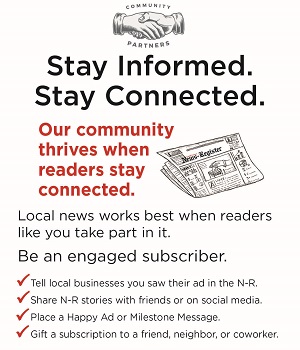State commission denies land use appeal over parkland reduction in UGB planning
The city is in a sequential work program with the state to determine if another UGB expansion is needed to accommodate growth through 2041. As the first step in the process, the city submitted three analyses (a Housing Needs Analysis, Economic Opportunities Analysis and Buildable Lands Inventory) to the Department of Land Conservation and Development earlier this year.
Land use watchdog groups 1,000 Friends of Oregon and Friends of Yamhill County and resident Mark Davis filed 12 appeals on the analyses, and DLCD Director Brenda Ortigoza Bateman subsequently upheld the city’s position on 11 of the objections and remanded one issue to the city involving an overestimated need for park land.
Last month, city council voted to resubmit the analyses with 76 acres of parkland removed to satisfy the remand. The change will result in more housing, commercial and industrial needs in the next step in the sequence focusing on Land Use Efficiencies, according to Community Development Director Heather Richards.
The watchdog groups then appealed the director’s decision, leading to a hearing Friday with LCDC.
Richards addressed the commission alongside Mayor Remy Drabkin, outlining the process and steps the city has taken to address issues such as equity for all residents in the planning.
The city has been down this path before with the same groups, which appealed similar analyses in 2001 that led to a decade of legal challenges and finally a UGB expansion in December of 2021.
House Bill 2003 requires cities with populations over 10,000 to study and plan for current and future needs every six or eight years. Despite the recent UGB expansion, McMinnville was chosen to complete the planning work because the analyses haven’t been updated since 2003, according to Richards.
“Did we want to be at this place where we’re doing this again after we just went through this process and had 25 years of challenges and appeals and over $1 million of resources to defend that, and finally get to a UGB amendment?” Richards asked the commission. “No, we did not want to be here.
“We find ourselves on this hamster wheel of doing growth planning, defending growth planning and then being put right back into it.”
1,000 Friends attorney Mary Kyle McCurdy and members Rob Hallyburton and Sid Friedman joined Davis representing the appellants.
The commission appeal centered on six issues related to the identification of employment sites, retail leakage calculations, future job creation on residential land, parkland needs and the exclusion of buildable land from inventories based on ownership.
Commissioners asked clarifying questions but spent little time deliberating before unanimously agreeing with the staff recommendation to deny the appeal and uphold the director’s decision.
Richards told the News-Register the city is “thrilled” with the decision, but cautioned the appeal process is likely not over as the groups can now appeal the LCDC ruling to the Oregon Court of Appeals – which happened with the previous expansion.
“There’s another process for appeal if they choose,” she said. “Historically…they have appealed every step of previous processes.” The LCDC is expected soon to formally issue the findings, at which point an appeal may be made.
The city has until 2026 to determine the need for a UGB expansion and submit a plan for it, according to the work plan agreement.













Comments